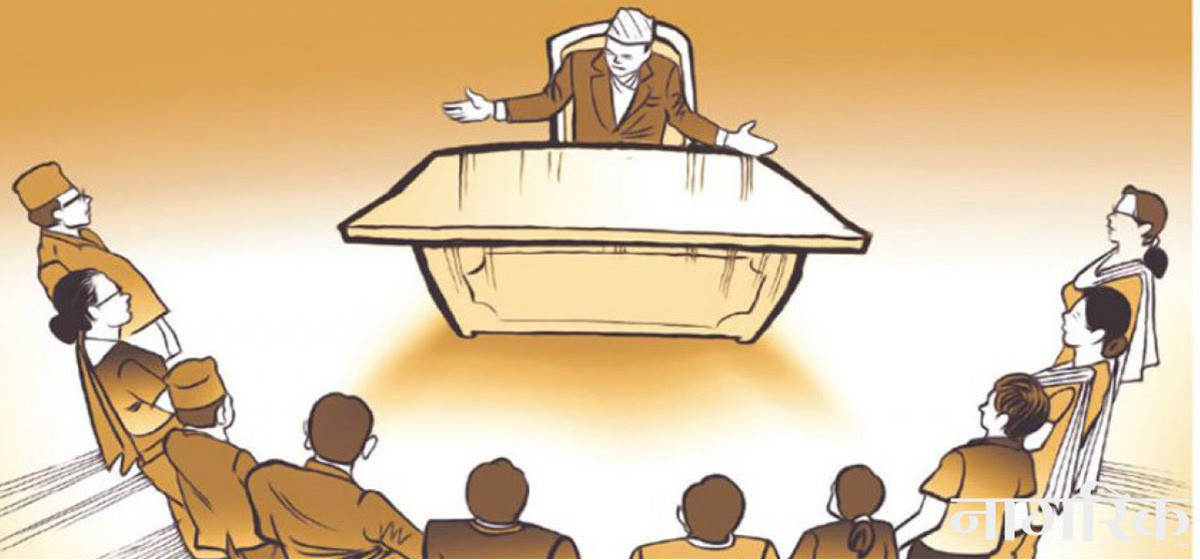KATHMANDU, Sept 20: Nepal's civil service sector, responsible for implementing federalism, remains in limbo due to the lack of an administrative law. Despite being the duty of political parties and the government to introduce a civil service law, there has been little urgency. As a result, the civil service is struggling to manage federalism effectively.
Experts in administration call it unfortunate that the civil service law has not been enacted, even nine years after the Constitution was promulgated. The government has been trying to introduce the Federal Civil Service Act since 2017. Previous governments tried to pass the law through ordinances when it seemed unlikely to get endorsed from Parliament, but both parliamentary and ordinance attempts failed. Most recently, during then-Prime Minister Pushpa Kamal Dahal’s tenure, the government registered the civil service bill in Parliament on March 4, 2024.
On May 28, the bill was sent to the State Affairs Committee of Parliament. However, with the budget session of Parliament ending on September 16, the bill could not be passed. Although the government had pledged to pass it during the session, it will now wait until the winter session, with no certainty about its passage then.
Kali Prasad Parajuli, spokesperson for the Ministry of Federal Affairs and General Administration (MoFAGA), emphasized that the absence of the civil service law has caused problems in mobilization of government employees, their career development, and transfers across all three levels of government. “The Federal Civil Service Act, an umbrella law, must be introduced soon,” Parajuli said. “Without it, mobilization of civil servants at both provincial and local levels is facing difficulties.”
Bill bars local units from recruiting civil servants

While the central government has completed employee adjustments at all three levels, challenges related to management, transfers, and career development persist due to the absence of the Federal Civil Service Act. MoFAGA employees reported that this gap complicates the relationship between central, provincial, and local governments.
A draft of the Federal Civil Service Act was prepared after the 2017 general elections. Since then, multiple ministers and secretaries have promised to prioritize it, but none have succeeded in enacting it. This delay has hampered efforts to implement federalism through administrative reforms.
Currently, the civil service operates under the outdated Civil Service Act of 1992, which was designed for a centralized governance system. The Constitution of Nepal mandates that the Federal Civil Service Act should guide the creation of employee administration laws at the provincial and local levels, but the lack of a central law has hindered provincial and local governments from crafting their own administrative laws.
Despite six years of employee adjustments across all three levels of government, provincial and local governments still face severe staff shortages. Many ministries in Madhesh Province lack provincial secretaries, with lower-level employees filling in. Similar shortages are reported in Karnali and Sudurpaschim provinces.
Employees above the level of under-secretary outside Kathmandu rarely stay in their positions for more than six months while provincial secretaries and chief secretaries do not stay outside the valley for more than three months. Frustrated by this pattern, some provincial governments have proposed their own civil service laws to ensure that secretaries remain in their provinces, hoping to end the trend of officials preferring to stay in Kathmandu.
Even after the promulgation of the 2015 Constitution, several commissions were formed to address how to reduce the number of higher-level employees, but their recommendations have gone unimplemented. In 2021, a task force led by former Prime Minister's Secretary Laxman Aryal reviewed the positions of secretaries and high-level officials. The task force recommended strengthening provincial and local governments and reducing the number of central government employees, suggesting a reduction of federal secretaries from 73 to 45. However, this recommendation is also unlikely to be implemented.
According to MoFAGA, over the past 71 years, more than two dozen commissions, committees, and task forces have been established to address these issues. Some were chaired by the prime minister, yet their recommendations have consistently been ignored.





































